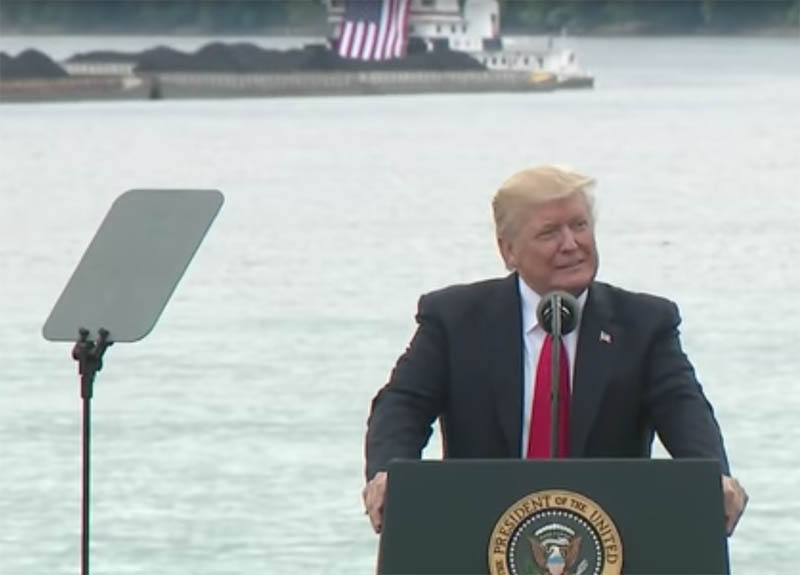A week after top Democrats and the White House reached a tentative accord to repair the country’s transportation system, the bipartisan gesture seems to be in trouble, putting into question whether promises made by President Trump two years ago on the Ohio River to repair the inland waterways system and other national infrastructure can finally move forward.
The $2 trillion deal reached last Tuesday between the president and House Majority Leader Nancy Pelosi, D-Calif., and Senate Minority Leader Charles Schumer, D-N.Y., is running into opposition from Republicans and other conservatives who object to the huge price tag as well as any federal tax increases to fund a bold overhaul. Even Trump’s top aide, Mick Mulvaney and Senate Majority Leader Mitch McConnell, R-Ky, a big waterways funding supporter, oppose it, according to a report in the Washington Post.
The newspaper said Mulvaney is trying to scale down the plan to about $1 trillion, which he thinks will be more acceptable to skeptics in Congress.
Paying for such an ambitious plan, without raising taxes, especially on gasoline and diesel, will be the biggest hurdle to cross.
“The question most of our members are asking is, “How are we going to pay for this,” Senate Majority Whip John Thune, R-S.D., told the Post.
At stake for the waterways industry is a handful of lock and dam improvement projects throughout the inland rivers that have been authorized but not yet funded by Congress, as well as completion of those that have already started and operation and maintenance of infrastructure along the entire system, where repairs are backlogged and maintenance often deferred due to lack of funds.
Representatives of inland barge operators and agricultural interests that rely on rivers to transport goods, are heartened by the recent bipartisan progress and hope that the enormous needs and urgency of repairs will encourage Congress to find solutions to financing the improvements.
“We hope the bipartisanship on display during this initial meeting is not a fleeting moment but rather will start to build momentum toward a comprehensive infrastructure bill,” Mike Steenhoek, executive director of the Soy Transportation Coalition in Ankeny, Iowa, said. Soy farmers rely heavily on barges to move their products to customers.
Mike Toohey, president and CEO of the Waterways Council, Inc., a waterways funding advocacy group funded largely by the barge industry, said inland waterways will find a seat at the negotiating table as the rivers enjoy deep bipartisan support. He noted that previous infrastructure bills in the Obama administration ignored waterways, but that Congress has always included money to upgrade the nation’s locks and dams. “So too, will inland waterways be part of the discussion and the outcomes in the current infrastructure debate,” Toohey said.
As Congress looks for ways to pay for the package, Toohey predicts that lockage fees and tolls - an oft-repeated proposal in many federal budget proposals that had been rejected by Congress - will not be part of a final plan.
“With the outreach of stakeholders convincing legislators and executive branch decision-makers that tolls and lockage fees are devastating to America’s competitiveness and especially to the value of farm commodities, these ideas are off the table in the infrastructure debate,” he said.
Additionally, he said raising the fuel tax will be discussed, “but the commercial towing industry pays the highest fuel tax of all modes, at 29 cents per gallon. If the other modes, currently taxed at 18.4 cents per gallon - or not at all - have their fees or taxes increased, there should first be equity of assessment before raising waterways taxes, which were recently voluntarily raised 45 percent.”
In June 2017, flanked by barges carrying West Virginia coal on the Ohio River, Trump touted his infrastructure plan that he promised would fix “crumbling” locks and dams and make other waterways and national transportation improvements. The price tag of that initial plan was $1 trillion, half of the estimated cost of the one now being discussed.





